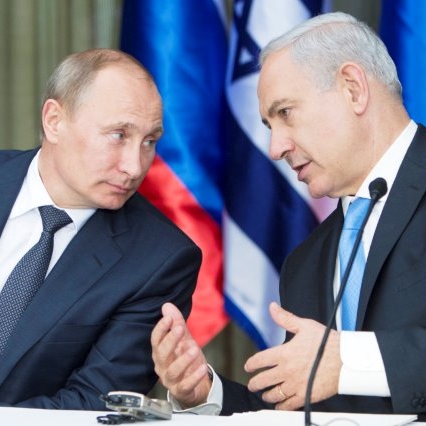
News

Russia the very active kid on the Middle Eastern bloc
PAULA SLIER
Since in power, many would argue he’s been trying to restore some of that failed Empire. Just as many would point out that the best place to do that is in the Middle East, the traditional stamping ground of the United States, and certainly the place where what one does, matters.
Fact check: Over the past two years Putin received leaders of Middle Eastern states on 25 occasions – five times more than former American President Barack Obama during the same period.
Fact check: In the last six months, Moscow has altered the course of the Syrian war and taken control of the peace process there; Russia has forged a close relationship with Turkish President Recep Tayyip Erdogan (when not so long ago many worried the two countries hovered on the brink of possible war) and has been courting traditional American allies like Egypt, Saudi Arabia and Israel.
Fact check: After 30 years on the sidelines Russia is again a major player in the Middle East. The country’s successful flexing of its military power has led to the rapid expansion of its political clout – among America’s adversaries and traditional partners. And Obama, and now US President Donald Trump, do not seem too intent on stopping the Russian bear.
It flies in the face of American foreign policy since the Second World War when Washington defined the blocking of Soviet expansion as among its highest national security priorities. The North Atlantic Treaty Organisation (Nato) set up in 1949, aimed to “to keep the Russians out, the Americans in, and the Germans down”, according to its first Secretary-General Lord Ismay.
But the times they are a changin’ and unpopular American military interventions and a domestic shale gas revolution that has left the US less dependent on Middle East oil, sees Washington slowly withdrawing from the region.
The problem is that far from triggering a kind of self-sustaining equilibrium, such a withdrawal creates a vacuum that can often lead to conflict and chaos – which we’re certainly witnessing now – as well as giving room to new players to come to the fore – Russia, Iran, Islamic State…
The Middle East, though, has never been a priority for Russian foreign policy; the post-Soviet space is much more important to her – and unlike the US, whose foreign policy is in part driven by the ideals of creating democracy and transparency, Moscow’s foreign policy is much more pragmatic and limited in ambition.
But whereas the US is geographically far from the Middle East, the region is on Russia’s borders. Stopping the spread of Islamic fundamentalism is a mainstay of Putin’s foreign policy, especially in Syria, where an estimated 7 000 Russian nationals are fighting among the ranks of Islamic State and other groups. The concern of course is that they’ll return home to carry out terror attacks within Russia’s borders.
When it comes to Israel, ties between the two countries are strong, especially after more than a million Jews from the former Soviet Union made aliyah over the past 20 years. Members of the Russian-speaking community hold influential political posts in Israel and multiple agreements have been signed between the sides over the years in the fields of technology, culture, education, counter-terrorism and more.
Ever the pragmatic politician, Israeli Prime Minister Benjamin Netanyahu reads the changing political map and although America has always been Israel’s closest and arguably most important ally in the region, it didn’t surprise many that Netanyahu flew to Moscow to meet with Putin no less than four times last year – double the number of times he met with Obama during the same period.
But now Donald Trump is in office and Netanyahu is smiling. Still, last week Thursday he was back at the Kremlin. This raised a few eyebrows. Netanyahu said the meeting was to discuss Iran’s attempts at establishing a permanent military presence in Syria.
Trump, however, had already earlier promised to extend economic sanctions against Iran after their latest ballistic missile test. If so, then the Israelis might not need Russia’s support for tougher action against Iran and its affiliated Hezbollah cells, something Netanyahu has been pushing for, after all.
So, why then the meeting? Is Netanyahu unsure of Trump’s reassurances; is he deferring to Putin; or is he simply trying to balance a delicate political tightrope between the sides?
To be sure, there’s a lot Israel and Russia disagree on. Netanyahu is concerned over Moscow’s close relationship with Tehran, of weapons being passed to Hezbollah in Syria that will land up being pointed at Israel from Lebanon – but this is all old news.
Putin doesn’t need to be reminded of it again – no doubt it came up during all those earlier meetings. Netanyahu knows he’ll come away empty-handed if he asks Putin for a major shift in regional allegiances or Russia’s promotion of Israeli interests.
Russia certainly has no interest in provoking Israel, but it also sees no necessity to stand on Israel’s side.




